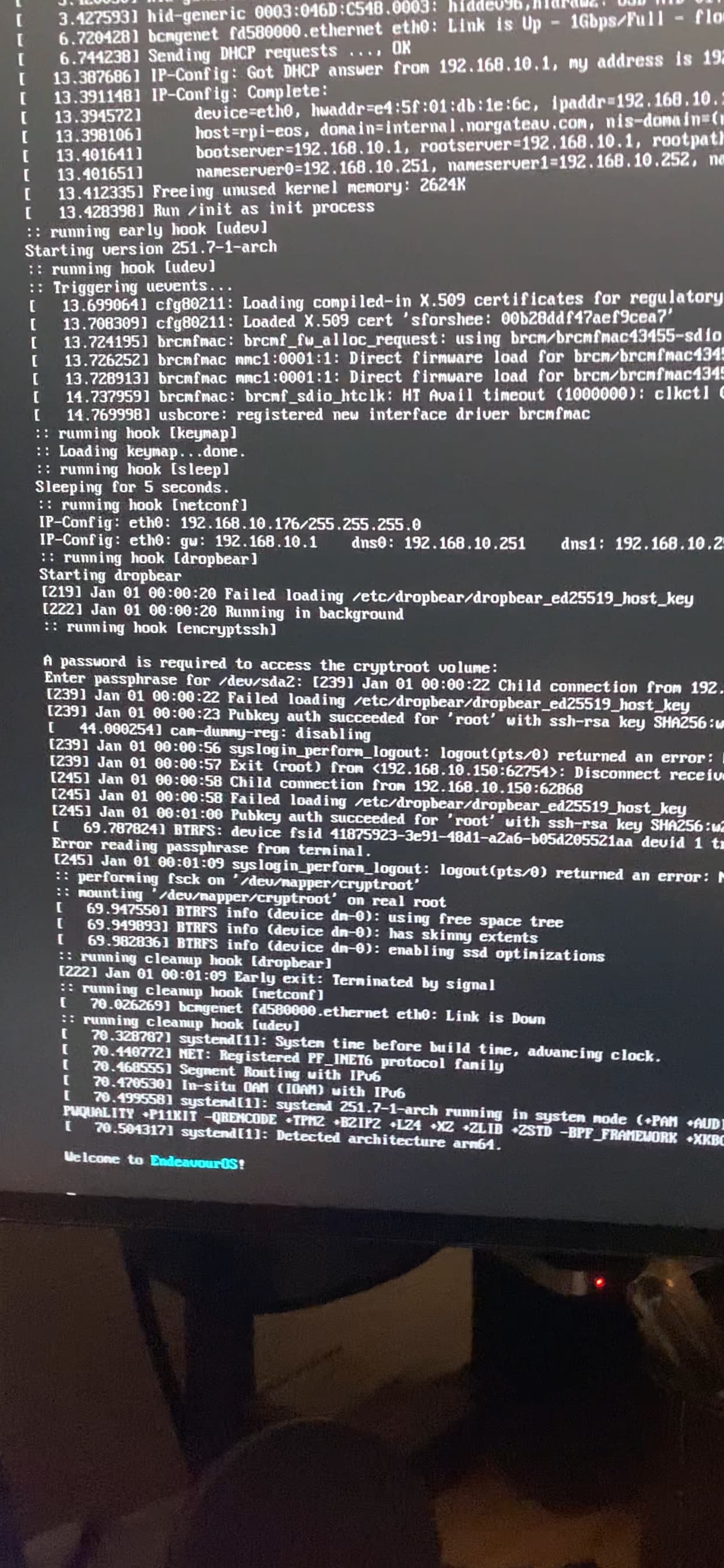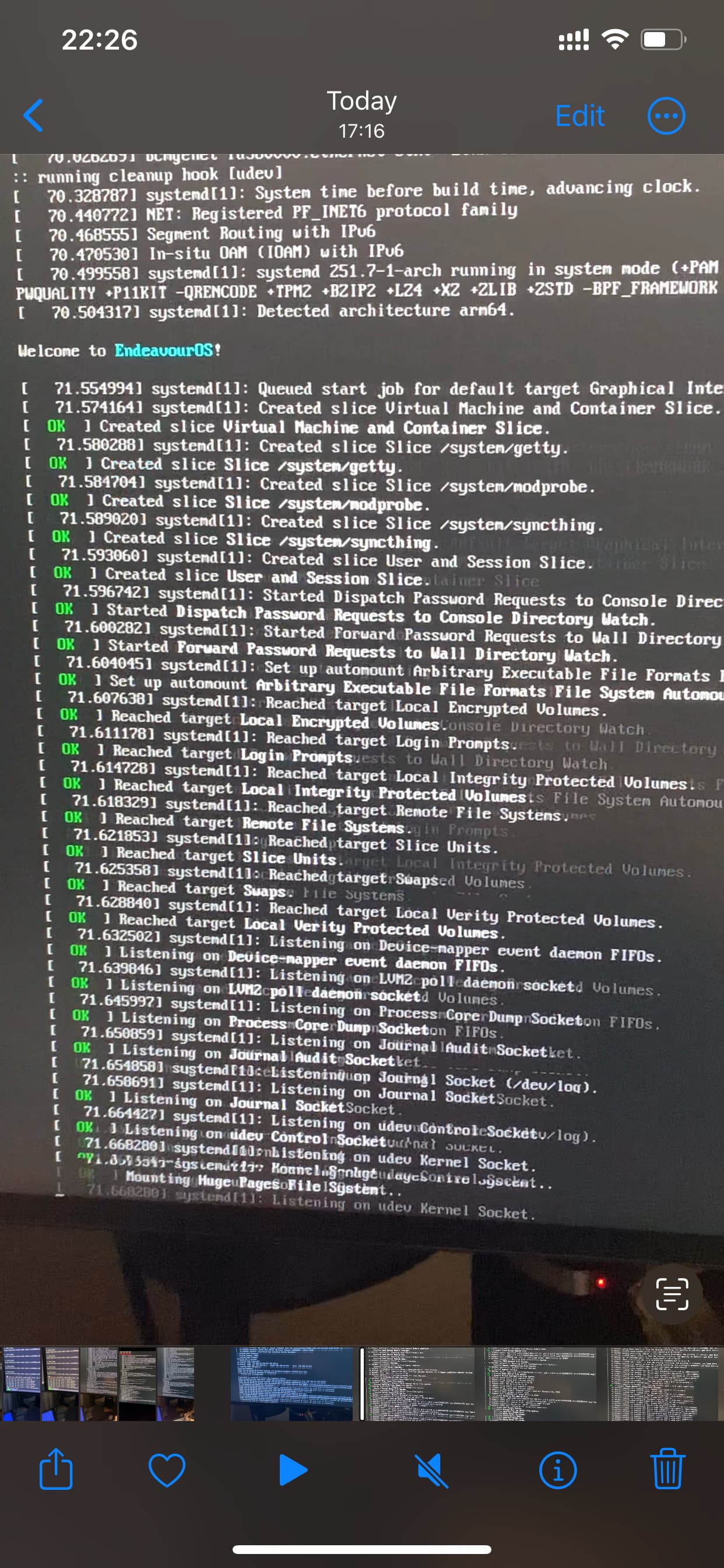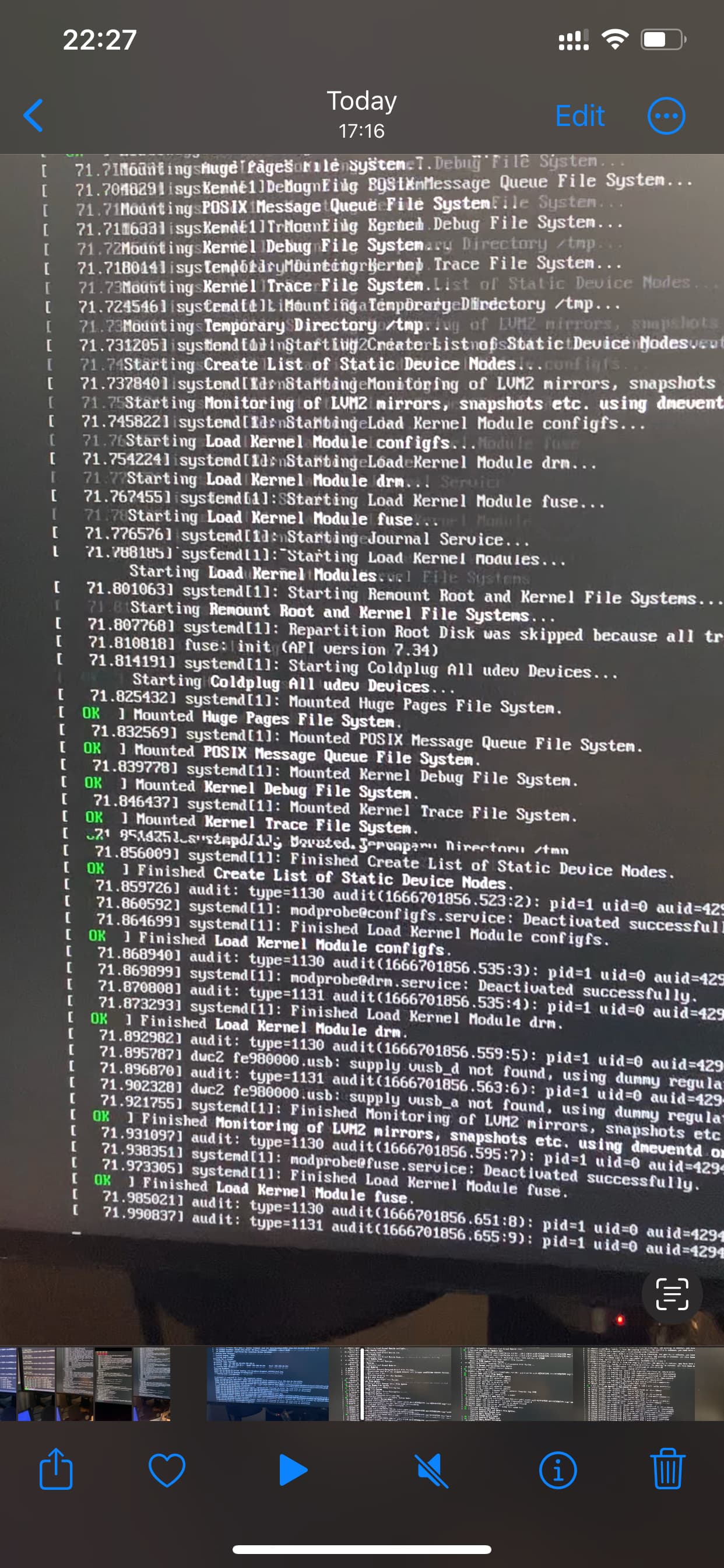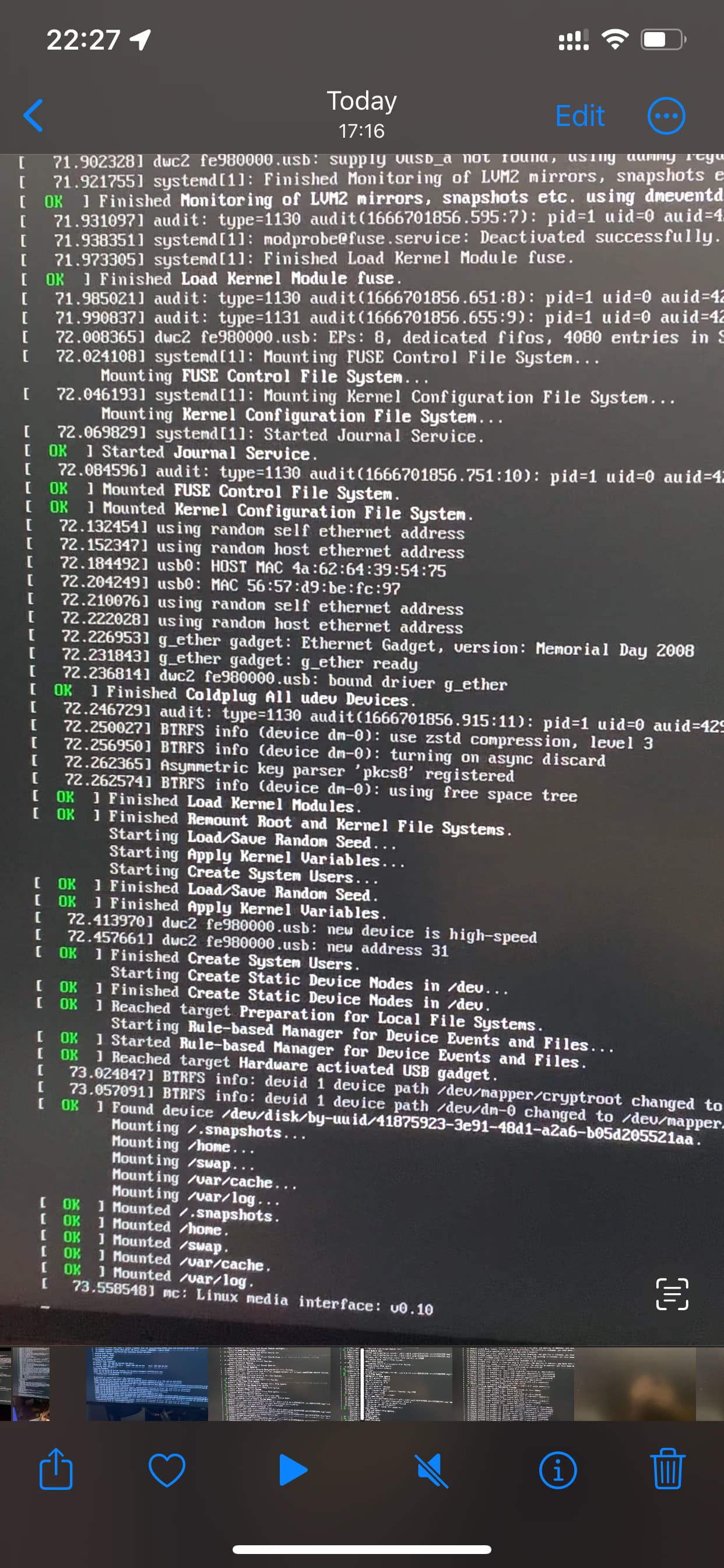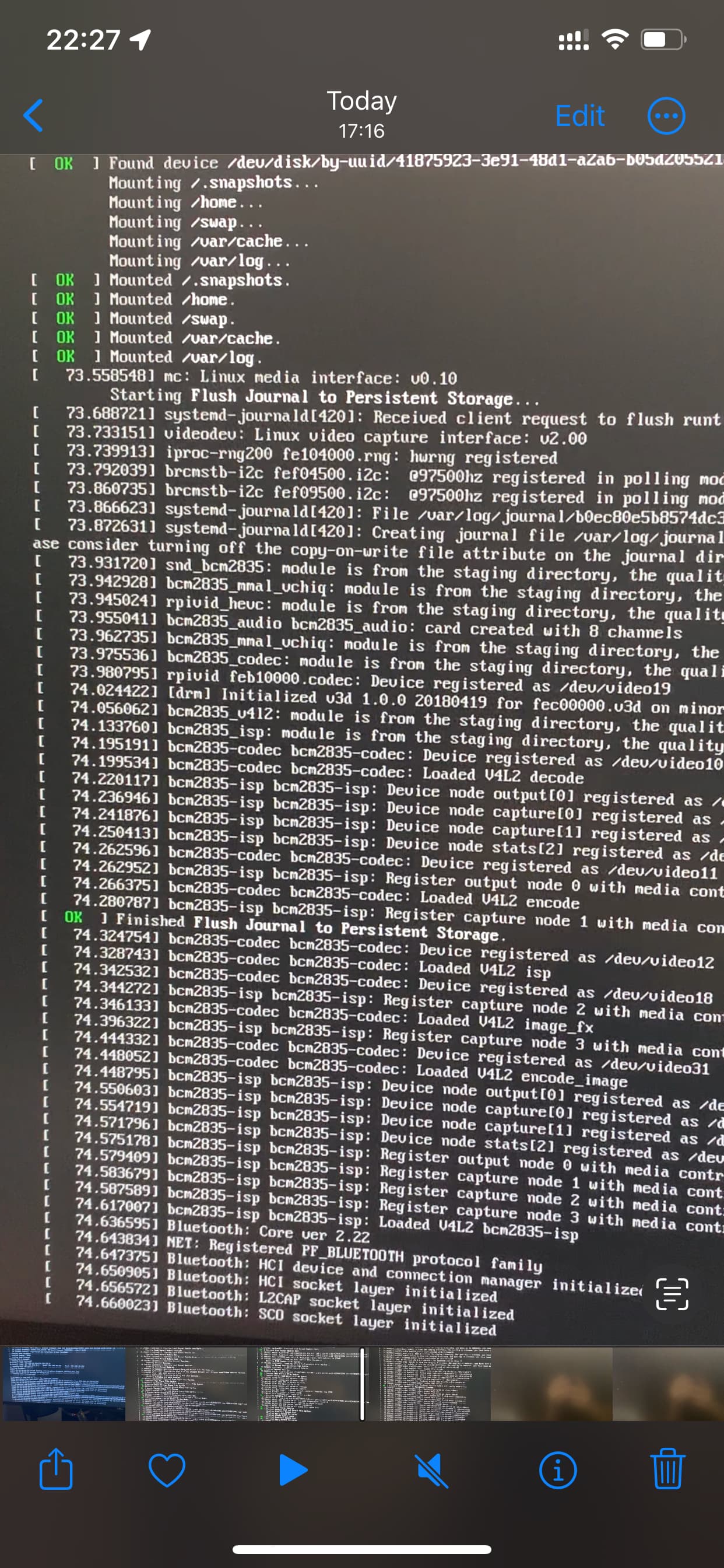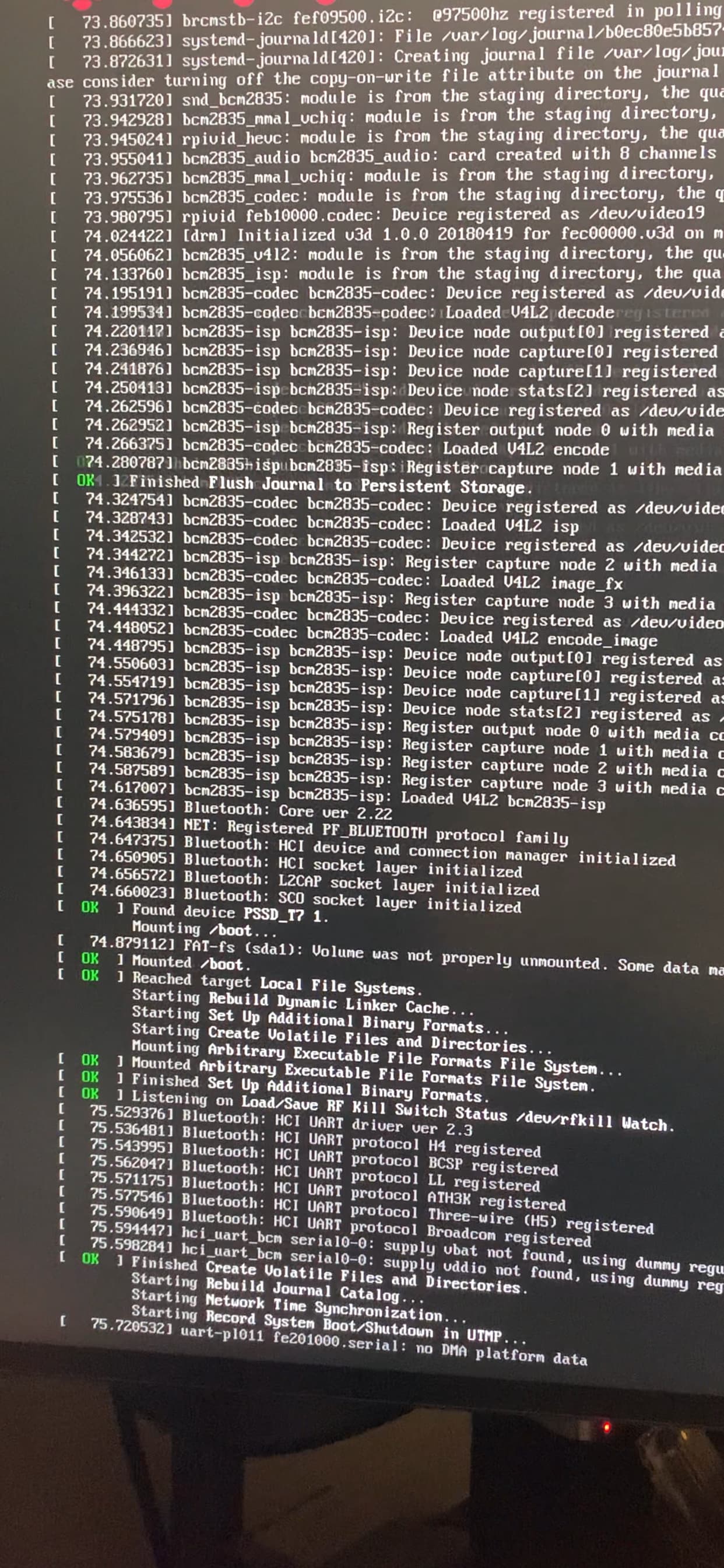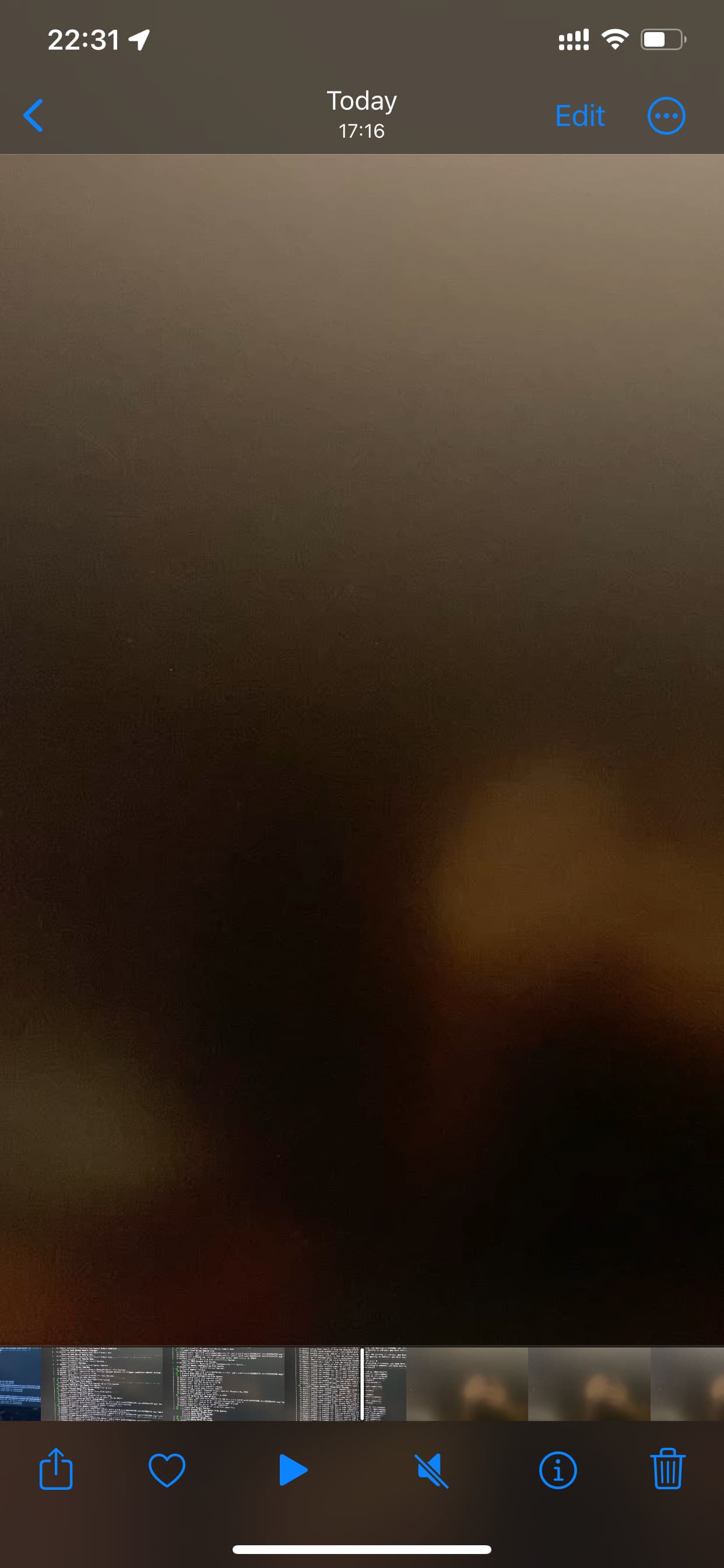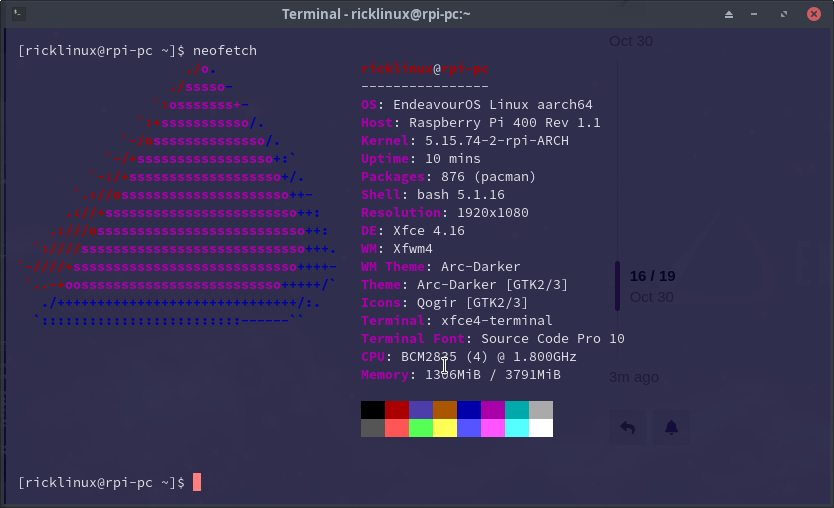Hi all,
I’ve been trying to clone my initial EndeavourOS setup from the SD card to a USB SSD. I’m having some success but I can’t get the Pi to fully boot from the SSD yet. Just looking for some assistance/advice if possible.
Some basic system info…
dmesg
[ 0.000000] Booting Linux on physical CPU 0x0000000000 [0x410fd083]
[ 0.000000] Linux version 5.15.74-2-rpi-ARCH (builduser@leming) (aarch64-unknown-linux-gnu-gcc (GCC) 12.1.0, GNU ld (GNU Binutils) 2.38) #1 SMP PREEMPT Thu Oct 27 17:19:59 MDT 2022
[ 0.000000] random: crng init done
[ 0.000000] Machine model: Raspberry Pi 4 Model B Rev 1.5
The SSD is a Samsung T7 500GB.
My /boot/cmdline.txt…
cat /pi-setup/boot/cmdline.txt
ip=::::rpi-eos:eth0:dhcp cryptdevice=UUID=f5b54fb4-d46d-4d8c-bab4-eca960bac183:cryptroot root=/dev/mapper/cryptroot rootflags=subvol=@ rootfstype=btrfs fsck.repair=no rw modules-load=dwc2,g_ether rootwait console=serial0,115200 console=tty1 usbhid.mousepoll=8 usbhid.mousepoll=8
Block devices and mount points…
lsblk
NAME MAJ:MIN RM SIZE RO TYPE MOUNTPOINTS
sda 8:0 0 465.8G 0 disk
├─sda1 8:1 0 300M 0 part /pi-setup/boot
└─sda2 8:2 0 320G 0 part
└─cryptroot 253:0 0 320G 0 crypt /pi-setup/root/.snapshots
/pi-setup/root/swap
/pi-setup/root/var/cache
/pi-setup/root/var/log
/pi-setup/root/home
/pi-setup/root
mmcblk0 179:0 0 59.5G 0 disk
├─mmcblk0p1 179:1 0 200M 0 part /boot
└─mmcblk0p2 179:2 0 59.3G 0 part /var/lib/docker/btrfs
/var/log
/var/cache
/home
/
zram0 252:0 0 1G 0 disk [SWAP]
BTRFS subvolumes…
btrfs subvolume list /pi-setup/root
ID 256 gen 124 top level 5 path @
ID 257 gen 120 top level 5 path @home
ID 258 gen 123 top level 5 path @log
ID 259 gen 88 top level 5 path @cache
ID 260 gen 19 top level 5 path @swap
ID 262 gen 18 top level 5 path @snapshots
Block ID’s…
blkid
/dev/mmcblk0p1: SEC_TYPE="msdos" UUID="C2E0-D02F" BLOCK_SIZE="512" TYPE="vfat" PARTLABEL="primary" PARTUUID="339da916-b8c9-4870-9510-32e73ff3a2ab"
/dev/mmcblk0p2: UUID="2a9818bf-eb50-4f31-85b2-bd40d6f82e06" UUID_SUB="d42346ac-290e-42ef-bdd9-c8139fde2854" BLOCK_SIZE="4096" TYPE="btrfs" PARTLABEL="primary" PARTUUID="69f35711-a7ec-4442-8ea0-d5fc28ac2ee2"
/dev/mapper/cryptroot: UUID="41875923-3e91-48d1-a2a6-b05d205521aa" UUID_SUB="bf7f93e2-8e51-4c0b-8014-fd160e30857d" BLOCK_SIZE="4096" TYPE="btrfs"
/dev/sda2: UUID="f5b54fb4-d46d-4d8c-bab4-eca960bac183" TYPE="crypto_LUKS" PARTUUID="bdc8446f-02"
/dev/sda1: SEC_TYPE="msdos" UUID="6FFD-E17B" BLOCK_SIZE="512" TYPE="vfat" PARTUUID="bdc8446f-01"
/dev/zram0: UUID="f1fc2acc-a886-4b70-9755-eba4957b551b" TYPE="swap"
The /etc/fstab on the USB SSD looks like this…
cat /pi-setup/root/etc/fstab
# /etc/fstab: static file system information.
#
# Use 'blkid' to print the universally unique identifier for a device; this may
# be used with UUID= as a more robust way to name devices that works even if
# disks are added and removed. See fstab(5).
#
# <file system> <mount point> <type> <options> <dump> <pass>
# /dev/sda1
UUID=6FFD-E17B /boot vfat defaults 0 0
# /dev/sda2
UUID=41875923-3e91-48d1-a2a6-b05d205521aa / btrfs rw,noatime,compress=zstd:3,space_cache=v2,ssd,discard=async,commit=30,subvolid=256,subvol=/@ 0 0
# /dev/sda2
UUID=41875923-3e91-48d1-a2a6-b05d205521aa /home btrfs rw,noatime,compress=zstd:3,space_cache=v2,ssd,discard=async,commit=30,subvolid=257,subvol=/@home 0 0
# /dev/sda2
UUID=41875923-3e91-48d1-a2a6-b05d205521aa /var/log btrfs rw,noatime,compress=zstd:3,space_cache=v2,ssd,discard=async,commit=30,subvolid=258,subvol=/@log 0 0
# /dev/sda2
UUID=41875923-3e91-48d1-a2a6-b05d205521aa /var/cache btrfs rw,noatime,compress=zstd:3,space_cache=v2,ssd,discard=async,commit=30,subvolid=259,subvol=/@cache 0 0
# /dev/sda2
UUID=41875923-3e91-48d1-a2a6-b05d205521aa /swap btrfs rw,noatime,compress=zstd:3,space_cache=v2,ssd,discard=async,commit=30,subvolid=260,subvol=/@swap 0 0
# /dev/sda2
UUID=41875923-3e91-48d1-a2a6-b05d205521aa /.snapshots btrfs rw,noatime,compress=zstd:3,space_cache=v2,ssd,discard=async,commit=30,subvolid=262,subvol=/@snapshots 0 0
During boot, everything appears to go as expected. LUKS2 encryption is working. File system and subvolumes are mounted etc… But then the screen goes blank and turns off instead of fully booting and showing the display manager. In my case gdm.
